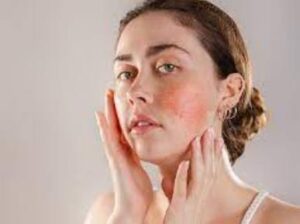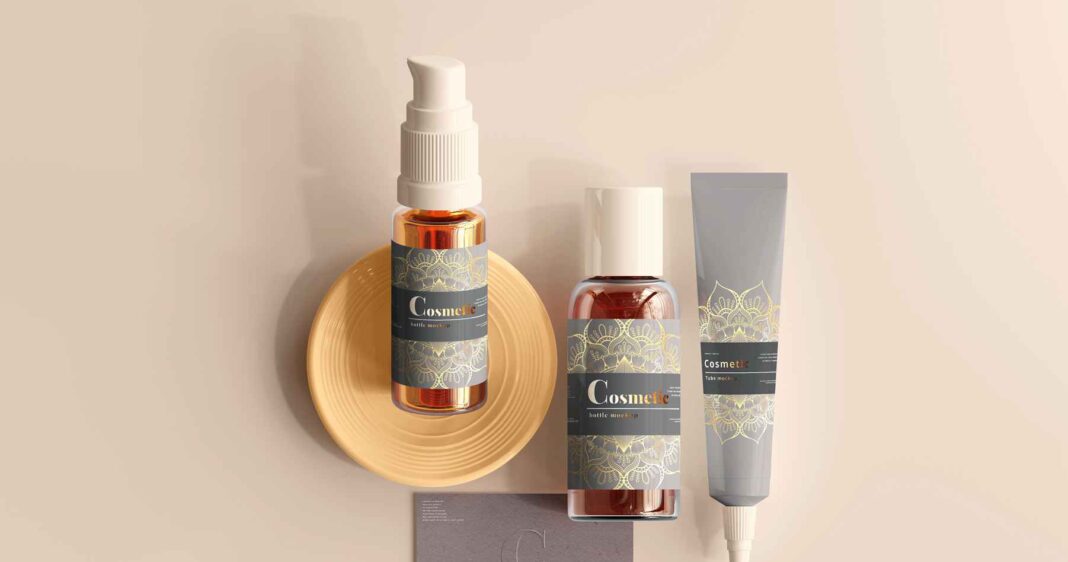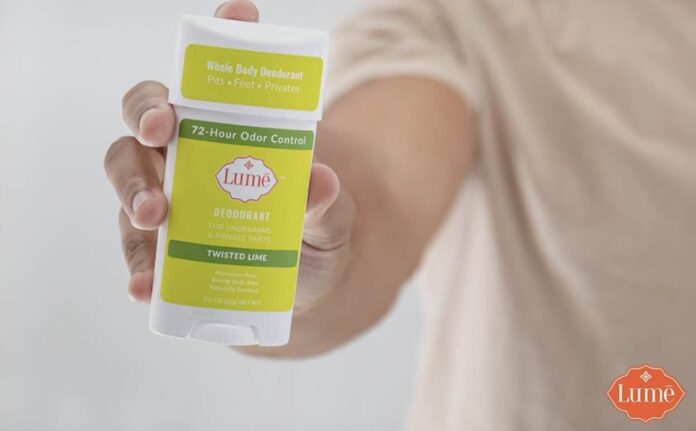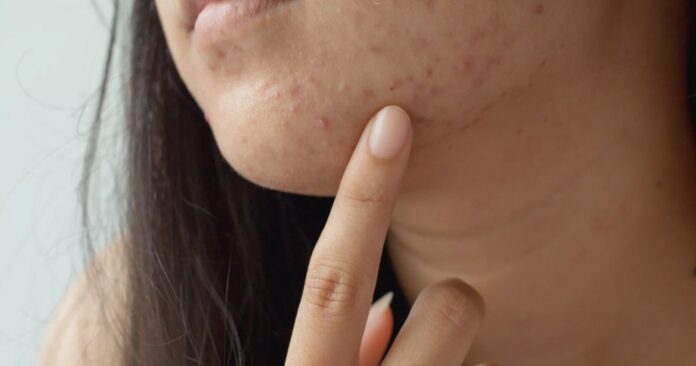Have you ever heard of Peptide’s benefits for skin healing after laser hair removal?
Laser Hair Removal uses light to target and destroy the cells that let hair grow. The laser accurately targets hair cells and leaves the surrounding skin untouched. The trick is that this light is absorbed by the pigment, which is then converted into heat, and when it reaches 70 degrees, it destroys the hair.
Women prefer laser therapy over waxing, shaving, or other methods, as laser air removal offers a long-lasting solution without much pain, irritation, or unwanted side effects. Still, there are a few issues with laser therapy, such as how it affects the skin right after the hair removal session.
Yes, it leaves your skin sensitive and a bit vulnerable. Any neglect here can cost you. So, having a proper skincare regime would be best to help your skin recover. There are many tried and tested methods to help your skin rejuvenate, and peptides are one of them.
How Does Your Skin Feel After Laser Hair Removal?
Before we discuss how peptides help you recover, let’s examine how your skin looks and feels right after laser hair removal.
During treatment, you will feel a stinking, picking, or burning sensation wherever the laser touches your skin. It might feel like someone is snapping a rubber band against your skin. Some laser machines have cooling features to prevent or minimise this sensation, but still, you should expect some discomfort during treatment.
As the session ends, you will continue feeling residual discomfort (temporary), which can take the shape of:
Redness and Itchiness
Redness and itchiness are quite normal after a laser session. Still, the severity depends on your skin’s sensitivity and how long it takes to recover. At first, it will feel like a razor burn, but if the issue persists after 24 hours, contact your dermatologist, or it will lead to blistering or worse.

Pigmentation
Another side effect is hyperpigmentation (skin darkening) and hypopigmentation (lightening of the skin) right after the treatment. It happens as the laser stimulates or inhibits your skin’s ability to produce melanin, triggering it to have less or too much pigment.
Crusting and Blistering
Exposure to lasers can damage or burn skin, and sometimes, it causes crusting and blisters. Once these heal, they leave discoloration behind. While discoloration fades on its own, it takes a few months. In some cases, the discoloration can be long-lasting.
To reduce their severity, you can apply ice packs and use steroids or anti-inflammatory creams. Moreover, avoid the sun and tanning for a few weeks after the treatment. Still, if this doesn’t help, resort to peptides.
What are Peptides?
Peptides are made from amino acids, like an alphabet of proteins. As amino acids chain up, they make a peptide, and when lots of these link together (in a complex way), they make a protein. When you eat protein, it’s broken down into smaller amino acids, which are arranged or rearranged to form new proteins.

This whole process is essential for the body to work correctly. Peptides perform different functions in the body. These mainly work as tiny messengers, sending signals among cells. Moreover, these help your body heal, build muscles, or break down fats. In other cases, peptides help the body with hormones, such as insulin, vital in regulating blood sugar.
Peptides also help with several skin issues; they make skin look young and firm. They build muscles, burn fat, and even treat diseases. Currently, scientists are exploring these peptides for new medicine, mainly because of how they help the body and skin recover.
Yes, peptides help your skin recover with collagen stimulation; they improve enhancing skin barrier wound healing and have anti-inflammatory properties. We will discuss how peptides can help your skin recover after a laser hair removal session.
Helping Your Skin Recover
Peptides have several benefits in skin care. This building block improves skin repair, boosts collagen production, fights inflammation, reinforces the skin barrier, and helps the skin stay hydrated. In the following, we will explain how peptides can benefit your skin after a laser hair removal treatment.
Improving Skin Repair and Boosting Collagen Production:
Collagen molecules are too large to be absorbed into the skin. Peptides are smaller and, therefore, readily penetrate the skin barrier. Once they get inside, they help the body to produce more collagen, thus making it more elastic. This process helps keep your skin firm and young-looking. As peptides stimulate the production of these products, they help the skin repair itself, something you can use right after a laser treatment.
Fights off Inflammation and Reinforces Skin Barrier:
Peptides support the skin’s barrier as it boosts ceremide production. Ceramides are essential lipids that form up your skin barrier; doing so helps you achieve a healthy skin structure. Moreover, peptides can help you fight inflammation and oxidative stress, which can severely damage your skin’s barrier. Minimising these effects paves the way for a more resilient skin surface, which protects the skin while it repairs itself.
Boosts Skin Cell Regeneration:
Stimulating the production of new skin cells is among the benefits. Doing so replaces old damaged cells with new ones; this helps improve the skin’s health, texture, tone, etc. Moreover, stimulating the growth of new cells speeds up the healing and fading process of scars and pigmentation. This regenerative technique helps your skin recover from laser hair removal fast, even if you have mild irritation or sensitive skin.
Anti-Inflammatory Properties for Redness and Irritation:
Peptides are rich in anti-inflammation properties and can help fight off skin irritation and redness. Its antimicrobial properties protect the skin against any potential infections, helping your skin to heal correctly. Antioxidants in peptides combat free radicals, preventing oxidative stress that can damage skin cells or delay healing.
Improves Blood Circulation to Skin
Peptides improve the production of collagen and essential nutrients; this supports the formation of new blood vessels, thus improving blood circulation to the lasered area. As you get more oxygen and nutrients there, it heals faster along. Besides more oxygen and nutrients, the increased blood flow also carries waste products away quickly, helping the healing process.
Helps Keep Your Skin at its Best Shape
Laser treatments adversely affect collagen and elastin, which keep your skin firm and elastic. This weakens your skin’s natural structure and resilience. A peptide treatment restores these proteins and prohibits muscle contractions that help the expression line up. This is achieved by relaxing the skin, helping fine lines fade, and letting the skin maintain a natural and smooth texture as it heals.
It also preserves the skin’s collagen as it limits the activity of MMPS. When these enzymes are overactive, they lead to excessive collagen breakdown, making your skin age faster. The peptides help maintain your skin’s structural integrity by inhibiting these enzymes, promising a youthful appearance preserved after the laser treatment.
Using Peptides to Recover After Laser Hair Removal
We will show you how to use peptides for your laser hair removal. Peptides help at every stage of hair removal, so we will show you how and when to use them before, during, and after the laser treatment.
Before the treatment
Peptides improve your skin’s resilience and help strengthen it against intense laser energy, minimizing the risk of thermal damage. So start with a regime 2-4 weeks before the treatment. After cleansing the area, use a peptide serum to boost collagen production and follow it with a moisturizer.

During the Laser Treatment
You should follow professional advice and any pre-session advice. The clinic may use a soothing gel with aloe vera and peptides to help reduce the discomfort during treatment.
Post Laser Treatment
You need peptides to boost the healing process. Start with immediate care and focus on the first 24-48 hours. Apply the soothing gel to reduce redness and swelling. Afterward, use a gentle cleanser and a peptide-rich recovery cream for healing.
Now focus on the 2-4 week plan, use a peptide serum to help your skin’s collagen synthesis, and continue it with regular sunscreen and moisturizer. Continue this into a long-term skincare regime to improve your skin’s health and resilience further. Doing so will strengthen the skin and make it resilient.
Remember to do a patch test when introducing something new to your skincare. Also, remember the instructions from your specialist. Maintain a good diet plan and keep your skin hydrated by drinking plenty of water.
Following this regime and adding these tips will help you get the most out of your skincare regime. It will make your skin look better and reinforce it at a cellular level.
Conclusion
Peptides are much underrated, considering their skincare benefits. If you want to reap the peptide benefits, use it to prepare your skin for laser hair removal. You need a strategic use with a dedicated regime designed before, during and after the laser treatment.
Doing so will not only prepare your skin but will help it to recover faster after the treatment. Peptide minimizes the side effects of laser treatment. You can help it out by avoiding going under the sun for a few weeks, at least after the therapy.
Moreover, say no to saunas and hot showers because your skin is still sensitive. If you have any questions, ask your technician for advice. Do not exfoliate, and avoid using intense or highly concentrated products. Only use light and mild cleaners and serums. Keep check on your skin for any adverse reactions as well.

 By Laura
By Laura







